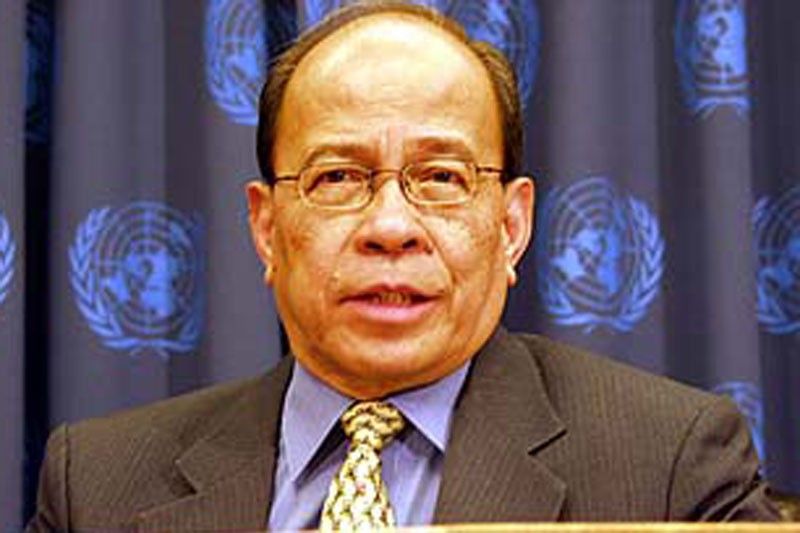Sandiganbayan affirms Lauro Baja Jr.’s graft conviction

MANILA, Philippines — The Sandiganbayan has affirmed its decision convicting former Philippine ambassador to the United Nations Lauro Baja Jr. of graft and malversation for supposedly pocketing insurance payments amounting to $17,524 for a damaged government-owned apartment in New York City in 2006.
In a 17-page resolution promulgated on Oct. 12, the anti-graft court’s Special Fourth Division found no merits in Baja’s motion for reconsideration (MR) and supplemental MR seeking the reversal of its April 13 ruling finding him guilty of the graft and malversation charges filed against him by the Office of the Ombudsman.
“After going over the arguments raised by both parties, the court cannot subscribe to the ambassador’s claim that he acted in good faith and transparency,” the ruling read.
“On the contrary, his actions reveal that, right from the outset, he treated the funds subject of these cases as his own and disbursed the same in disregard of government procedures designed to ensure accountability and transparency,” it added.
The court, however, modified the prison term against Baja, citing the enactment of Republic Act 10951 in 2017, which lowers the imposable penalty for the crime of malversation.
From the original 10 to 17 years imprisonment for his malversation case, the Special Fourth Division downgraded it two years to a maximum of seven years.
The court retained the jail term of six years to 10 years imposed on Baja for the graft case. He is set to serve eight to 17 years in prison for both offenses.
The court also retained the accessory penalties of perpetual disqualification from holding public office and a fine of $17,524 or its equivalent in pesos.
The fine is on top of the malversed fund of $17,524 that Baja must return to the government, according to the Sandiganbayan.
The new ruling was penned by Associate Justice Bayani Jacinto with the concurrence of Presiding Justice Amparo Cabotaje-Tang and Associate Justices Alex Quiroz and Efren de la Cruz. Associate Justice Reynaldo Cruz dissented.
Filed in 2011, the cases stemmed from Baja’s alleged failure to remit to the government the $17,524 worth of proceeds from the insurance of a damaged Philippine-owned townhouse located at 15th East 66th Street, New York City, which served as his official residence as permanent representative of the Philippine Mission to the United Nations in New York.
The townhouse was supposedly damaged in December 2004 due to flooding caused by the bursting of heating pipes in the unit’s second floor.
Based on court records, US-based Lexington Insurance Co. issued checks in June 2005 as payment for the insurance of the damaged residential unit. The checks include payments for personal damages ($780), building damages ($12,504), hold backs ($1,739) and insurance of the “lost jewelry and cash” of Baja’s wife ($2,500).
In convicting Baja, the court gave weight to the testimony of prosecution witness mission finance officer Tomas Valerio Jr. that he advised the then UN representative to deposit the checks in the mission’s official Philippine National Bank account, but Baja supposedly refused and instead opened a separate PNB account under the name “Philippine Mission to the UN-Renovation of Townhouse.”
The court said that with the opening of a separate bank account, the Department of Foreign Affairs was kept in the dark on the existence of such insurance proceeds.
The court said Baja also “kept mum about the withdrawal of the insurance proceeds and the subsequent closure of the separate PNB account.”
In its new ruling, the court said Baja failed to substantiate his claim that the amount was indeed used for the renovation of the townhouse supposedly undertaken by contractor James McDonnell.
The court said all that Baja was able to submit were photocopies of McDonnel’s quotation and supposed receipts which, in reality, “bear no semblance of official receipts” as the name James McDonnel “appears to be merely stamped thereon.”
“More importantly, they do not contain particulars indicating the purpose of the payment,” the court said.
- Latest
- Trending


























